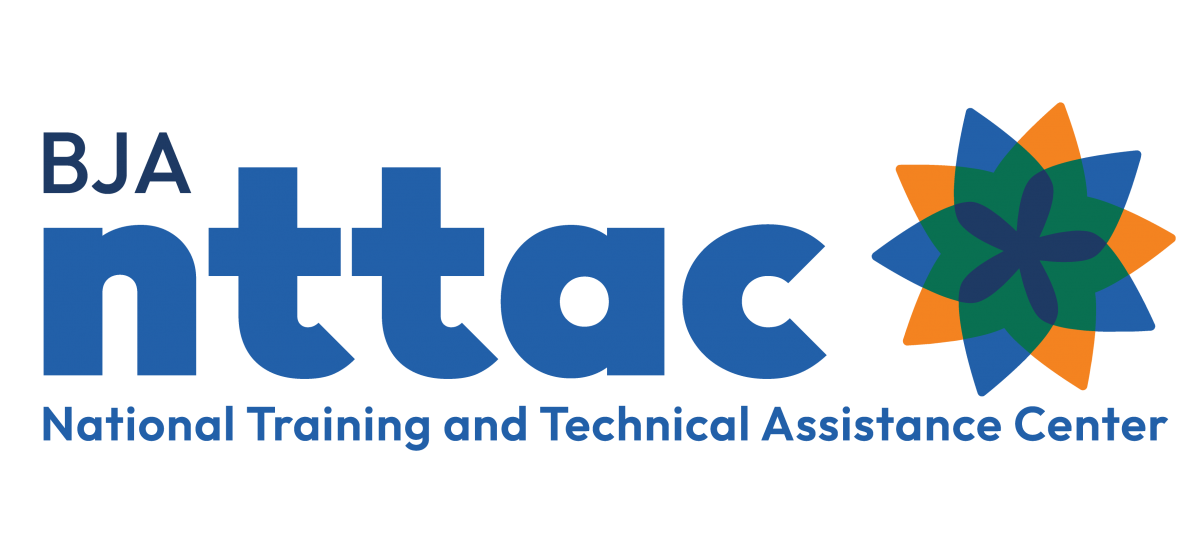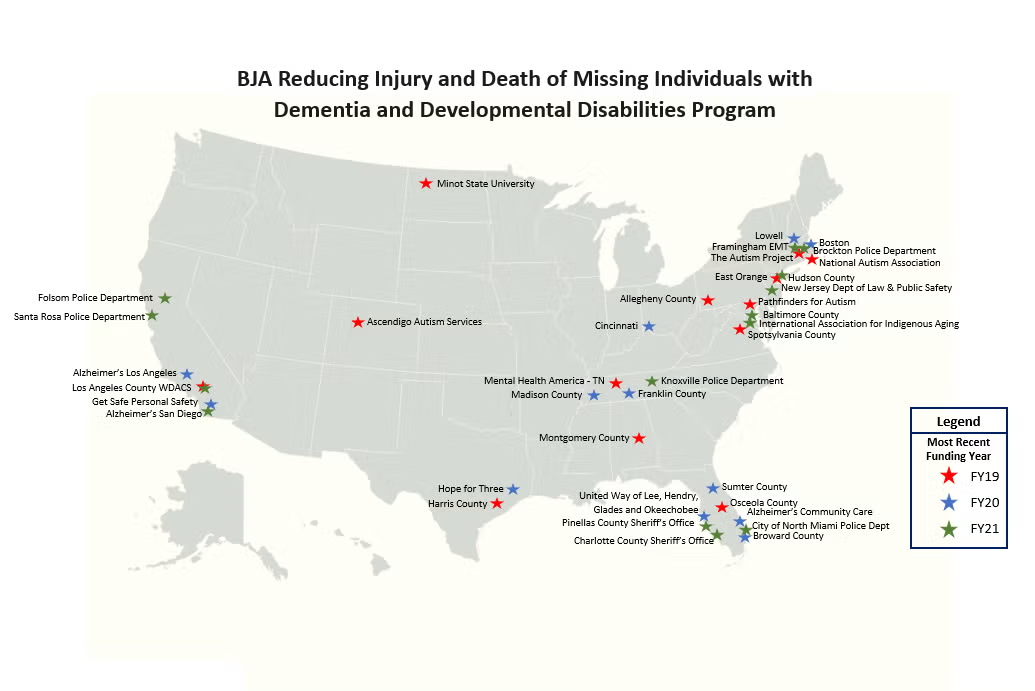In 2008, nine year old Kevin Curtis Wills wandered from home and drowned in Iowa’s Raccoon River. In 2014, 14 year old Avonte Oquendo wandered away from his school and drowned in New York City’s East River. Both had autism.
Kevin and Avonte’s Law, which was named in their honor, was enacted in 2018. It authorized the Bureau of Justice Assistance (BJA) to support local efforts to reduce the number of deaths and injuries of individuals with forms of dementia, such as Alzheimer’s disease, or developmental disabilities, such as autism, who, due to their condition, wander from safe environments.
BJA’s Kevin and Avonte Program provides funding to health care and law enforcement and other public safety agencies to implement locative technologies that track missing individuals. It also provides funding to such agencies and partnering nonprofit organizations to develop or operate programs to prevent wandering, increase vulnerable individuals’ safety, and facilitate rescues.
Available Funding
- Grants.gov deadline: February 20, 2026
- JustGrants deadline: February 27, 2026
Training and Technical Assistance
The Autism Society of America (ASA), in collaboration with the International Association of Chiefs of Police (IACP) and The Arc’s National Center on Criminal Justice and Disability® (NCCJD®), provides training and technical assistance (TTA) to the sites that receive funding through the Kevin and Avonte grant program. In this role, ASA provides support and guidance to help awardees meet their grant goals and objectives. They lead a national effort to prevent water- and wandering-related deaths through proactive programming, public awareness, and public policy.
In collaboration with NCCJD and IACP, ASA will launch Building Bridges, a program to support Kevin and Avonte site-based grantees. Building Bridges supports first responders to implement best-practice models, use least-restrictive methods, implement respectful and secure notification and communication systems, create consistent recovery protocols, thoughtfully utilize locative technologies and other technological enhancements, and revise response policies to ensure the highest levels of safety.
Additionally, BJA’s National Training and Technical Assistance Center (NTTAC) provides no-cost TTA on a variety of criminal justice topics to improve the knowledge and skills of criminal justice professionals. Agencies interested in receiving TTA through NTTAC can submit a request through an online application.
Program Sites
The following map captures the fiscal year (FY) 2019 through FY 2021 Kevin and Avonte Program grantee sites:
See the Funding Awards page and the Grant Sites section of the Home Safe website for additional details about recipients of funding through this program.
Connect with Others
Through Home Safe Connect, Kevin and Avonte Program grantees can create an account to share resources, information, and connect with other grantees who have similar goals. This online community supports grantees through a dynamic, secure, web-based space to promote peer-to-peer learning opportunities. Grantees are given access to Home Safe Connect by the training and technical assistance provider.
Learn More
View the Home Safe fact sheet and website to learn more.



